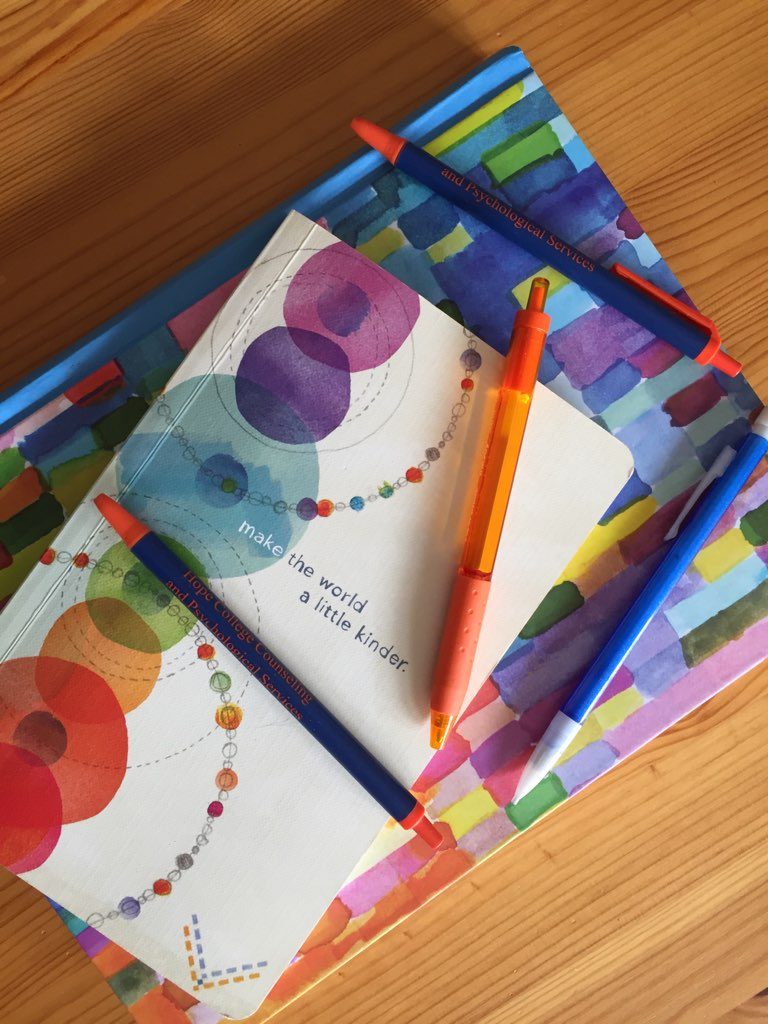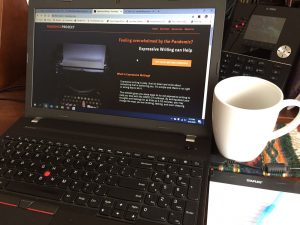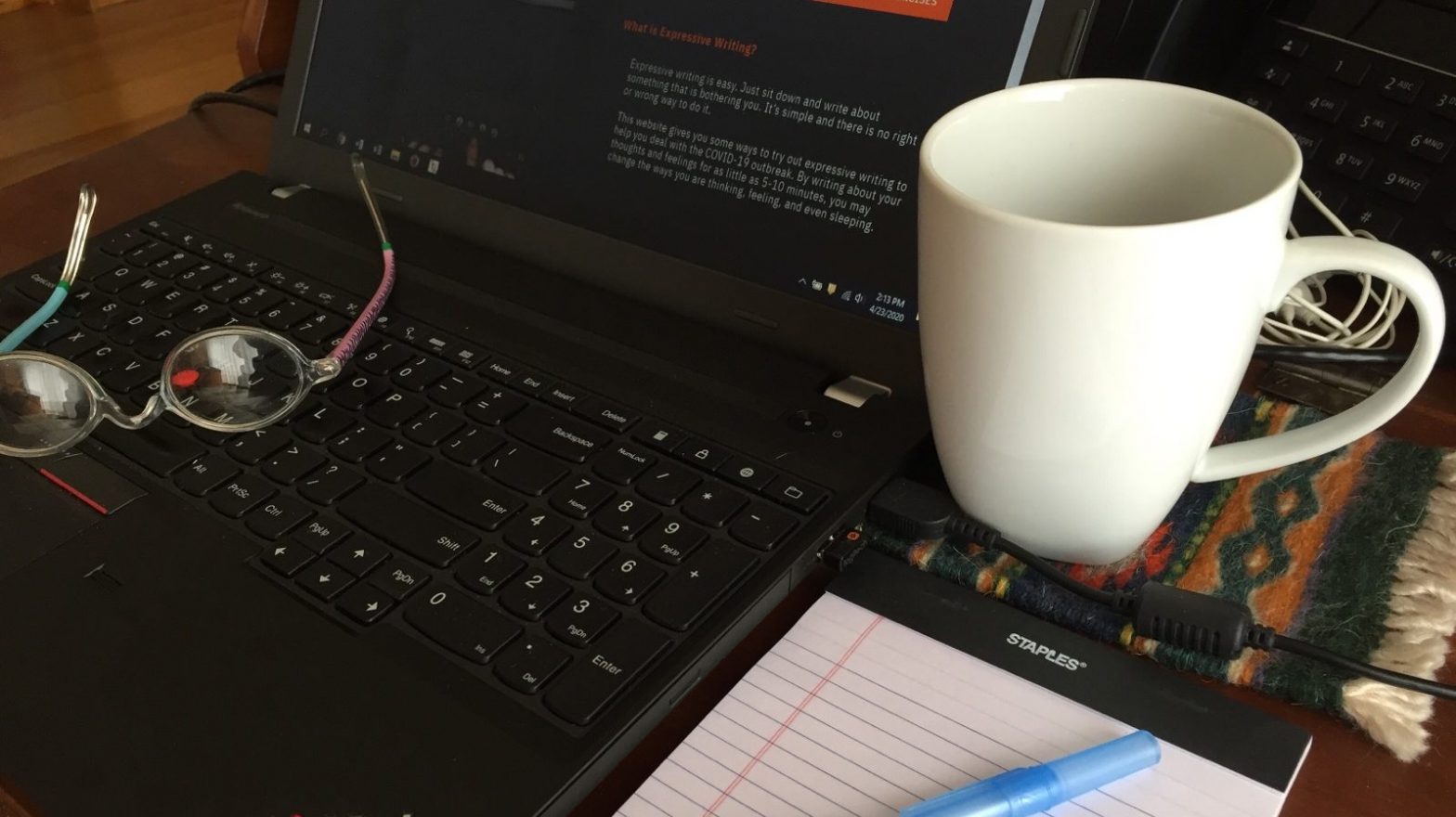by Dr. Bonnie VanderWal, LLP, CAPS Staff Counselor
Journal writing has long been a mode for getting our thoughts and feelings out. It can help relieve emotional pressure and help us to make sense out of what we are experiencing. For some, writing in a journal comes easily. For others, the writing feels like a chore, similar to homework. Although the effects have been shown to be positive, it can often be tough to get started.
What is expressive writing?

Expressive writing is a bit different. It is a specific type of journal writing. The activity is structured with writing prompts and time limits that make it simple, relaxed, and easy to do. Many studies have shown improvement in mental and physical health by using expressive writing as an outlet for distressing experiences.
Dr. James W. Pennebaker, the Regents Centennial Professor of Psychology at the University of Texas at Austin, studies how groups of people process and cope with widespread trauma. Currently, in the midst of the COVID-19 pandemic, Dr. Pennebaker and his research team have launched The Pandemic Project, a website that offers free resources for dealing with the impact of COVID-19. In particular, the website provides an expressive writing tool, which is anonymous and confidential, to help people learn more about their reactions to the outbreak.
How do I get started?
Check it out! It’s as simple as clicking on this link to The Pandemic Project’s expressive writing page. Choose the prompt you wish to write about, rate how you are feeling, and let loose. You don’t have to worry about grammar, spelling, or language—just write! It’s brief and when you are finished, you will complete a short survey and a computer program analyzes your writing. You receive feedback instantly about your survey and the ways you have written.
Set aside 5-10 minutes in your day and try it for 2-4 days. See if expressive writing makes a difference for you!

Looking for additional strategies to help with coping during these challenging times? Check out our other recent blog posts for additional coping skills:
- DISCUSSIONS WITH DASH (Coping Skills during the COVID-19 Response)
- Mind, Body and Spirit Wellness during COVID-19 (Guest Blog with Tim Koberna)
- Coping with the Anxiety of Living in a COVID-19 World? Try this! (Free workbook)
- A Time for Mindfulness Meditation


